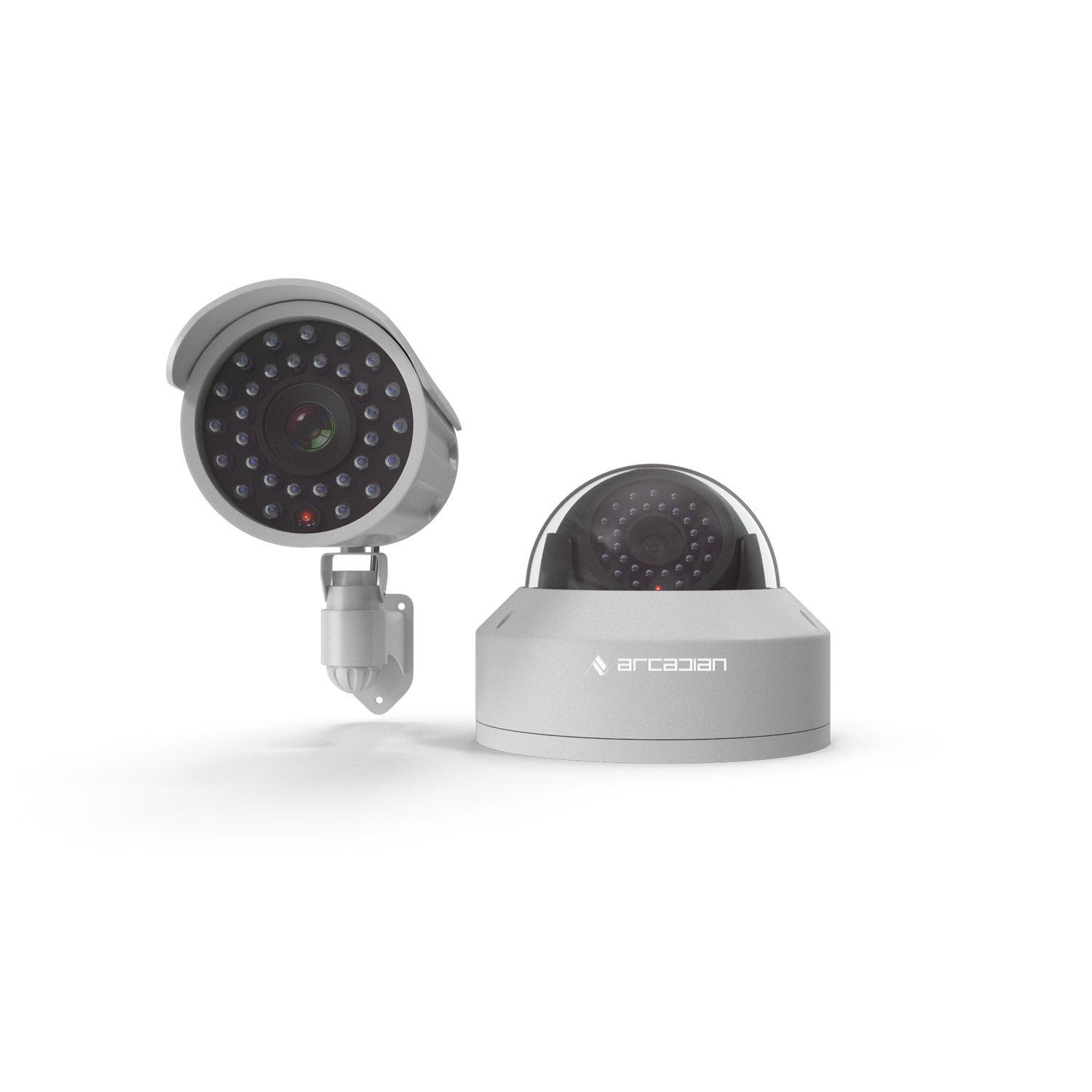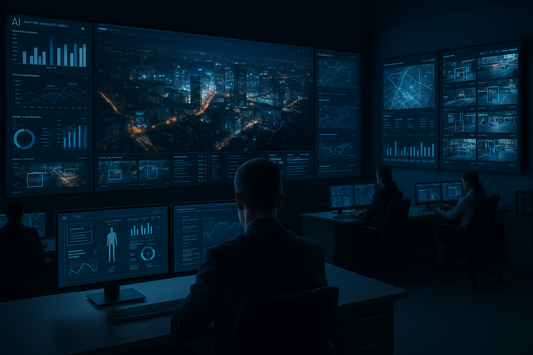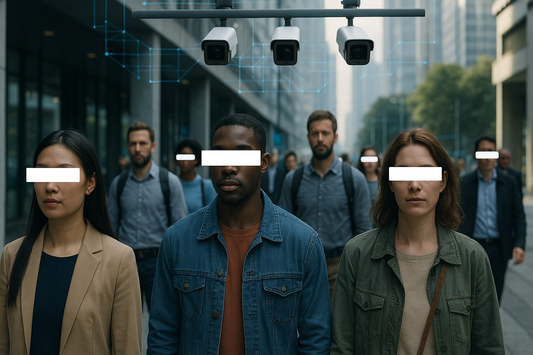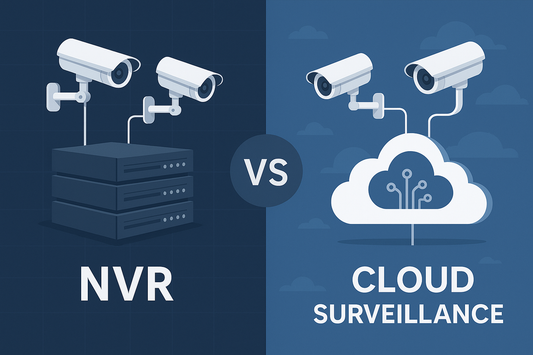The Best Physical Security Companies in 2025 — And Why They’re Failing You
From Allied Universal to Verkada, the “best physical security companies” are locked in outdated models that can’t keep up with today’s risks. Here’s the controversial truth: most of them are failing.
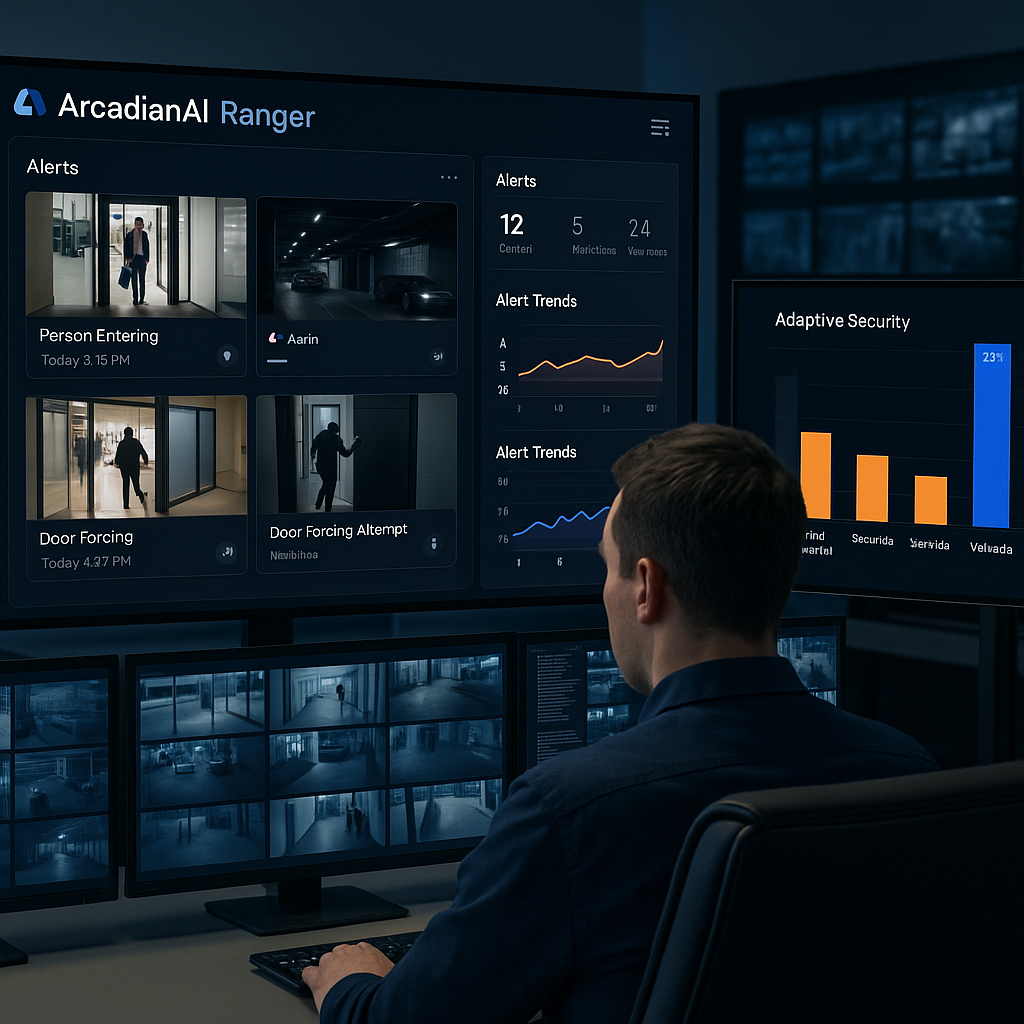
Introduction
In 2025, the global physical security industry is worth over $140 billion and growing at 7% annually (MarketsandMarkets, 2025). Yet the irony is striking: despite bigger budgets, more guards, and more cameras, businesses remain more vulnerable than ever. Organized retail crime in the U.S. topped $125 billion in 2024 (National Retail Federation). Cyber-physical breaches are rising. And false alarms? They still eat up police time, with over 95% of alarms deemed false (FBI, 2024).
The problem isn’t just criminals getting smarter. The problem is that many so-called “best” physical security companies — from Allied Universal, Securitas, G4S, and ADT to tech players like Genetec, Milestone, Eagle Eye Networks, Verkada, Axis, and Hanwha — are locked into outdated models. They sell static systems, siloed hardware, or armies of guards. They tell you “security is solved.” But in reality, they’re selling illusions.
ArcadianAI, with its cloud-native, camera-agnostic platform and adaptive AI assistant Ranger, flips the script. Security is not static. It’s contextual, dynamic, and adaptive — something no NVR, legacy VMS, or guard service can claim to handle across environments.
This blog isn’t a polite industry ranking. It’s a controversial exposé on how the “best” physical security companies are failing enterprises — and how ArcadianAI changes the game.
Quick Summary / Key Takeaways
-
Big “best” security companies sell static, outdated models.
-
Guards and alarms alone can’t stop evolving threats.
-
Legacy VMS and NVR vendors ignore context and adaptability.
-
ArcadianAI + Ranger offers dynamic, cloud-native security.
-
The future belongs to adaptive AI, not static checklists.
Background & Relevance
Why does this matter in 2025?
-
Retail shrink surged to record highs in North America, costing businesses $150 billion+ in 2024 (NRF, 2025).
-
Cyber-physical attacks are blending — ransomware plus physical intrusion hit several hospitals and logistics firms in 2024.
-
Security staff turnover remains brutal: Allied Universal and Securitas face annual attrition rates over 100%, according to industry reports.
Despite these numbers, the big “best” companies push the same stale formulas: more guards, more cameras, more contracts. But businesses don’t need more of the same. They need smarter, adaptive solutions.
Core Topic Exploration
1. The Illusion of “Best” in Physical Security
Lists like Kisi’s — “Best Physical Security Companies” — are seductive. They celebrate size, not performance. Allied Universal employs over 800,000 guards worldwide. Securitas boasts a massive international footprint. Johnson Controls sells every building management product under the sun. Verkada pushes shiny cameras with built-in storage. But are they solving the real problem?
Size ≠ security. Recognition ≠ adaptability.
2. Guard-Centric Giants: Allied Universal, Securitas, G4S
These firms dominate the top rankings. But their model is labor-intensive, expensive, and prone to human error. Guards fall asleep. Guards churn. Guards make mistakes. Worse, guards die. In 2024, dozens of security guards were killed in the line of duty across the U.S. and Canada (ASIS reports).
ArcadianAI doesn’t replace humans — it protects them. Ranger reduces false alarms, identifies real threats, and lets guards intervene only when necessary. That saves lives.
3. Alarm & Monitoring Firms: ADT, Brinks, Johnson Controls
Their playbook hasn’t changed since the 1980s: sell alarms, sell monitoring, flood police dispatch. The result? 95% false alarms. Police departments in cities like Los Angeles and Chicago are now charging fines or refusing dispatches unless alarms are verified.
ArcadianAI flips this by providing AI-verified alerts — not noise. Ranger uses behavioral and contextual analysis, reducing false positives by up to 90%.
4. Video Management Software: Genetec, Milestone, Eagle Eye
Genetec and Milestone dominate the VMS world, while Eagle Eye positions itself as VSaaS. They’re good at video storage, not intelligence. Genetec boasts its Security Center, Milestone its XProtect, Eagle Eye its API-driven cloud. But here’s the dirty secret: they all treat video as footage, not data.
ArcadianAI transforms video into actionable insights. Ranger analyzes across sites, compares behaviors, and feeds enterprises with intelligence — not just “recordings.”
5. Camera-Centric Vendors: Verkada, Axis, Hanwha, Hikvision
Verkada’s cloud cameras come with slick marketing, but their closed ecosystem is infamous for privacy breaches (The Verge, 2023). Axis and Hanwha produce excellent hardware, but they depend on third-party software to make sense of video. Hikvision, banned from U.S. government contracts under NDAA, still sells globally but faces massive trust deficits.
ArcadianAI is camera-agnostic. It doesn’t matter if you’re running Axis Q series, Hanwha PNV models, or even legacy Hikvision domes. Ranger adapts, learns, and delivers insights across mixed fleets.
6. Why Context Matters
Legacy systems treat a warehouse in Dallas and a boutique in Toronto the same. But environments differ: lighting, crime rates, cultural behaviors, even weather patterns change the threat landscape. Ranger is adaptive — it learns context. A loitering alert in New York may mean theft risk, while the same behavior in rural Montana may mean nothing. That’s the difference.
Comparisons & Use Cases
| Category | Legacy Companies | Weakness | ArcadianAI Advantage |
|---|---|---|---|
| Guards | Allied Universal, Securitas, G4S | High turnover, human error, high cost | Ranger augments guards with AI alerts, reducing workload |
| Alarms & Monitoring | ADT, Brinks, Johnson Controls | 95% false alarms, outdated response | Ranger verifies context before escalation |
| VMS/VSaaS | Genetec, Milestone, Eagle Eye | Footage storage, not intelligence | Ranger transforms video into data analytics |
| Cameras | Verkada, Axis, Hanwha, Hikvision | Hardware-centric, closed ecosystems | ArcadianAI is camera-agnostic, adaptive across fleets |
Use Case: Retail
Walmart and Target spend billions on loss prevention yet still lose billions annually. Ranger identifies employee collusion, organized retail theft, and repeat offenders across multiple sites in real time.
Use Case: Critical Infrastructure
Oil & gas sites monitored by guards often face fatigue and turnover. Ranger provides 24/7 behavioral monitoring, escalating only when anomalies appear.
Use Case: Healthcare
Hospitals rely on outdated badge and CCTV systems. Ranger adapts to patient movement patterns, spotting real risks like drug diversion or unauthorized access.
Common Questions (FAQ)
Q1: Why aren’t guards enough for security?
Because humans fatigue and miss patterns. AI augments, not replaces, guards.
Q2: Are NVRs and VMS obsolete?
Not obsolete, but limited. They store footage. They don’t adapt to context.
Q3: Why avoid closed ecosystems like Verkada?
Closed ecosystems limit adaptability, create vendor lock-in, and pose privacy risks.
Q4: How does ArcadianAI reduce false alarms?
By applying behavioral AI and context analysis, cutting false positives up to 90%.
Q5: Can ArcadianAI integrate with my existing cameras?
Yes. Ranger is camera-agnostic — Axis, Hanwha, Hikvision, even legacy analog.
Conclusion & CTA
The dirty truth about “best physical security companies” is that they’re not built for 2025. They’re built for yesterday. Guards, alarms, and static VMS platforms cannot solve the adaptive, contextual threats businesses face today.
ArcadianAI, with its AI assistant Ranger, represents the next evolution — dynamic, contextual, and cloud-native security that adapts to your environment.
It’s time to stop buying illusions and start demanding intelligence.
👉 See ArcadianAI in Action → Get Demo – ArcadianAI
Security Glossary (2025 Edition)
Adaptive AI Security — AI that adjusts alerts and analytics based on environment, context, and behavior.
Alarm Verification — AI-driven validation that ensures alerts are genuine before escalation.
Camera-Agnostic Platform — Software that works with any brand or model of camera without lock-in.
False Alarm Rate — The percentage of alerts that are not real threats; in traditional systems, often 95%+.
Genetec Security Center — A popular VMS platform, strong in integrations but limited in adaptive AI.
Guard Attrition — High turnover rate among security officers, often exceeding 100% annually.
Milestone XProtect — A leading VMS used globally; strong for recording, weak on AI intelligence.
NDAA Compliance — U.S. law restricting use of Chinese surveillance products (e.g., Hikvision, Dahua).
NVR (Network Video Recorder) — Hardware that records and stores video feeds from cameras.
Organized Retail Crime (ORC) — Coordinated theft by groups, costing U.S. retailers billions annually.
Ranger (ArcadianAI) — AI assistant that delivers adaptive, contextual video intelligence.
Securitas — One of the world’s largest security guard companies, reliant on manpower-heavy models.
Verkada — Cloud camera vendor with a closed ecosystem, criticized for privacy concerns.
VSaaS (Video Surveillance as a Service) — Cloud-based video storage and monitoring model, often static.
VMS (Video Management System) — Software that manages video feeds, typically storage-focused.
Axis Communications — Swedish camera manufacturer, strong in hardware innovation.
Hanwha Vision — Korean camera manufacturer known for enterprise-grade hardware.
Eagle Eye Networks — Cloud video platform, API-driven but still storage-centric.
Behavioral Analytics — AI-based monitoring that detects unusual actions or anomalies.
Contextual Security — Security models that adapt to location, culture, and environment.

Security is like insurance—until you need it, you don’t think about it.
But when something goes wrong? Break-ins, theft, liability claims—suddenly, it’s all you think about.
ArcadianAI upgrades your security to the AI era—no new hardware, no sky-high costs, just smart protection that works.
→ Stop security incidents before they happen
→ Cut security costs without cutting corners
→ Run your business without the worry
Because the best security isn’t reactive—it’s proactive.
